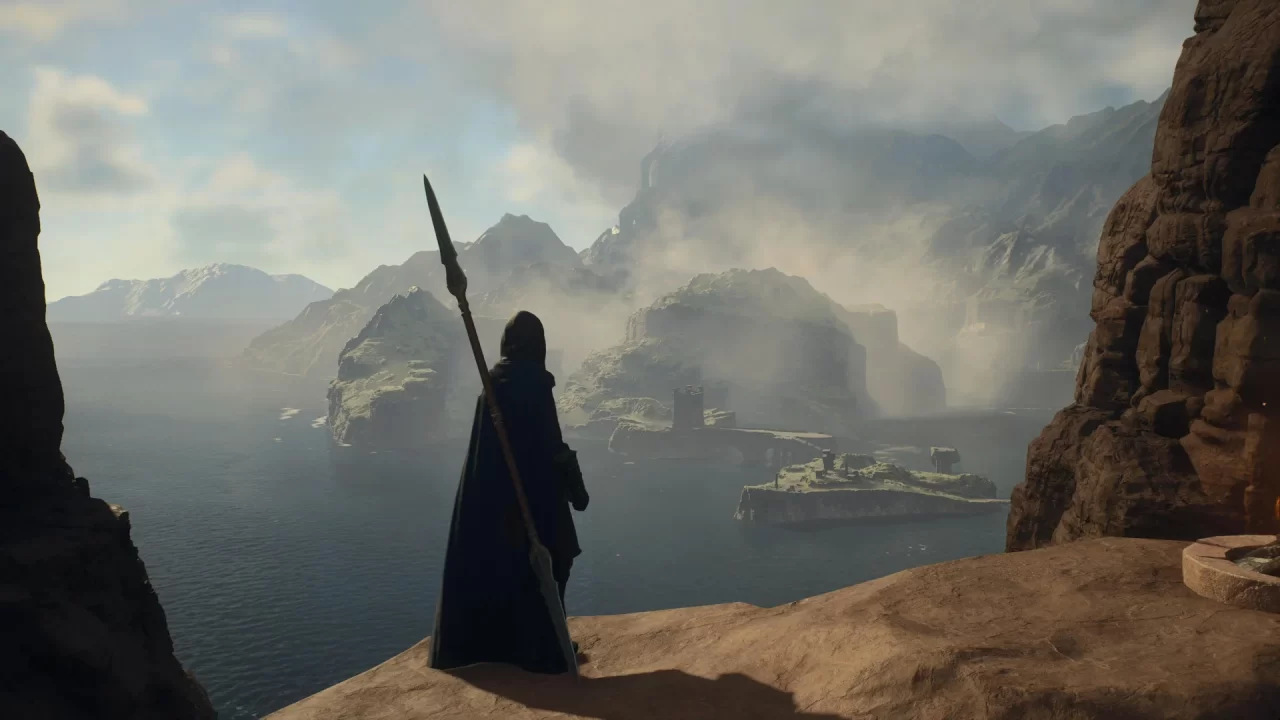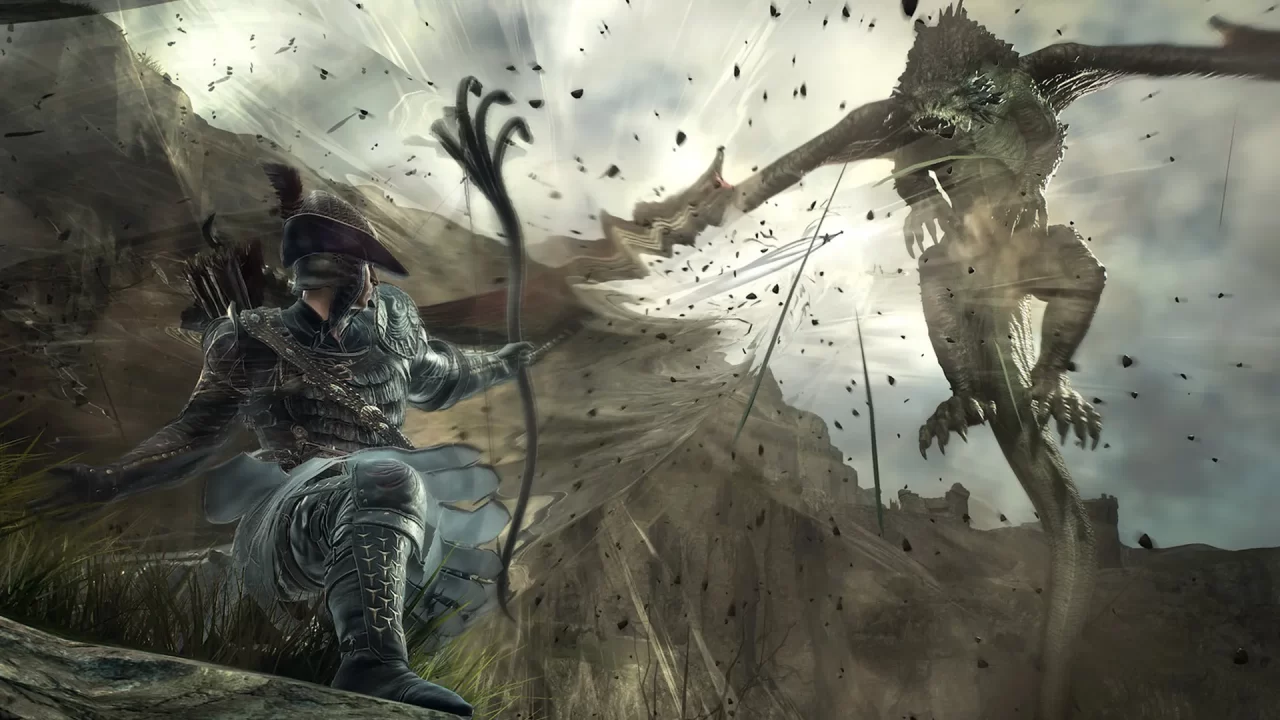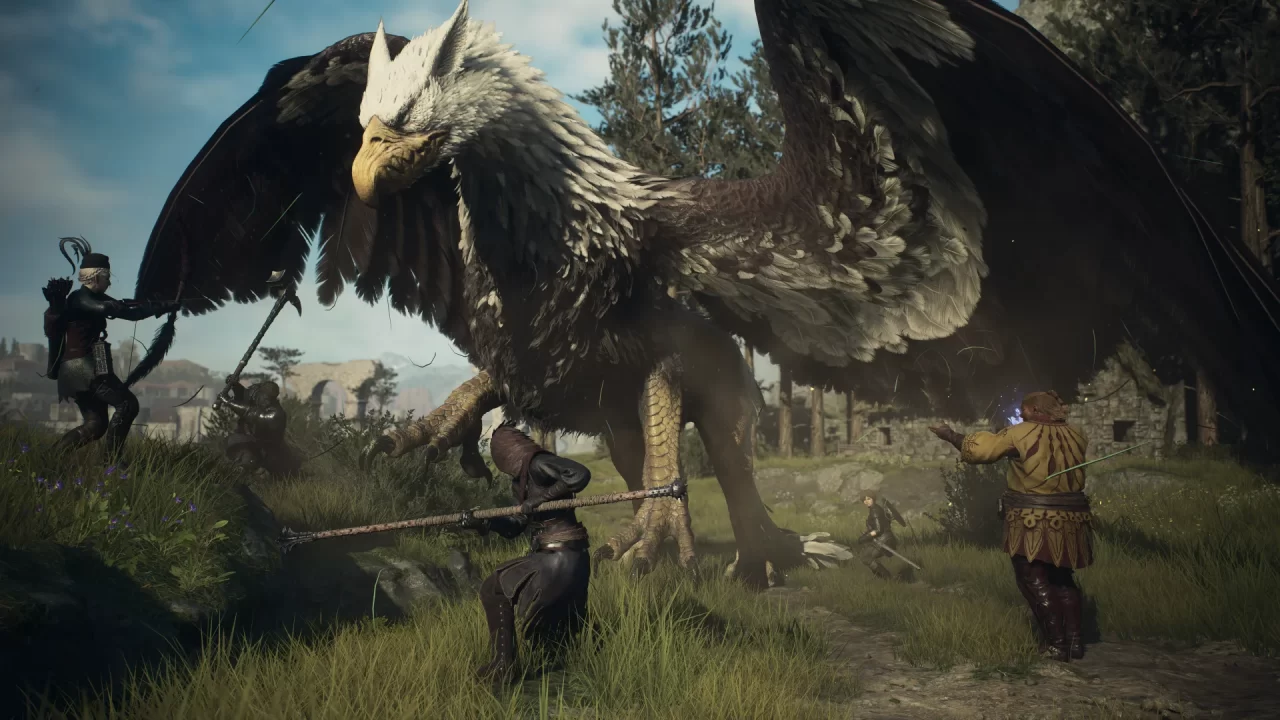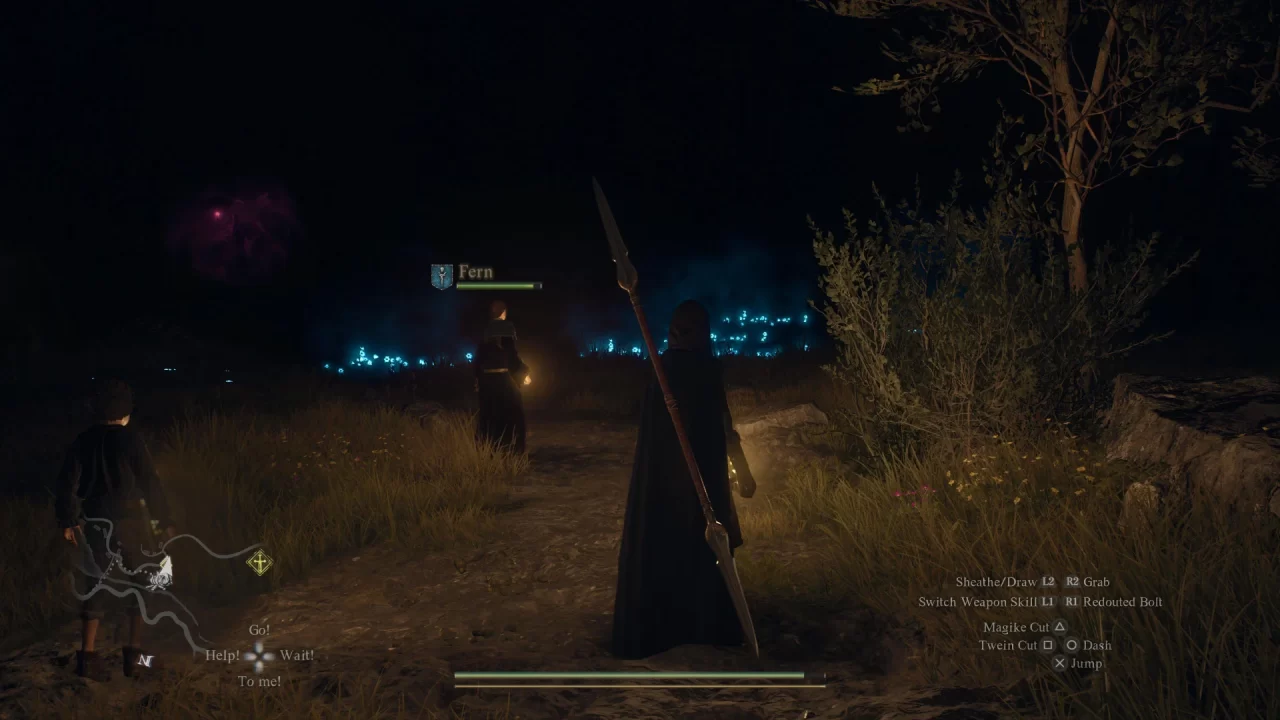It has been 12 long years since the original Dragon’s Dogma. A lot has changed in gaming, particularly in the open world space where games like Breath of the Wild (and its sequel), Red Dead Redemption 2, and Elden Ring have raised expectations considerably. Yet, Hideaki Itsuno and his team at Capcom bravely, confidently, and finally deliver unto all Dragon’s Dogma 2. Every interview with the developers drives home that Dragon’s Dogma 2 plays by its own rules, but does that translate into a game worth playing? Briefly, hell yes.
At first glance, Dragon’s Dogma 2’s world is as traditional as fantasy can get, much like the first game. Elves? Magic? Dungeons? Dragons? Check, check, check, and triple-check. Dragon’s Dogma 2 distinguishes itself in the nuances behind these fantasy staples. The Dragon (note the capital D) is a godlike being who chooses the Arisen, a mortal (and the player-created character) destined to face the Dragon and, in so doing, decide the world’s fate. The Arisen commands the loyalty of Pawns. Pawns do not have a will of their own and take on the will of their Arisen. The player takes control of the amnesiac Arisen and their Pawn (also created by the player). Initially, your goal is simple: find out why you lost your memories and learn who the pretender is sitting on your throne. There is an engaging main story worth uncovering. However, as an open-world game, Dragon’s Dogma 2 allows you the freedom to do whatever your heart desires from there.
Pick a direction and wander in it; there is always something interesting. While there are times when Dragon’s Dogma 2 starts to feel small, you need only walk around a corner to discover a mysterious dungeon, an unexpected quest, a terrifying new foe, or a truly stunning vista. The world may not be impressively sized for a modern open-world game, but it is densely packed. This is gleefully enabled by the world design itself, which unobtrusively leads you to its most exciting finds. Something is awe-inspiring about feeling like you stumbled onto something, only to notice afterward that carefully placed cues in the environment led you there without realizing it. Pawns are also better at giving you hints and leading you to things of value this time around. They also have a greater breadth of dialogue than the first game, but it still often feels repetitive and silly. I suspect new memes will spring from it. Never forget that wolves hunt in packs. Speaking of Pawns, you can still hire up to two from other players and even offer those players gifts when you dismiss their Pawn.
Another massive upgrade over the first Dragon’s Dogma shows as soon as you enter any settlement. Dragon’s Dogma 2’s cities feel lively and are chock full of amenities, quests to undertake, and hidden treasures to find. Stop by an inn to rest until morning, change up your skills or vocation at the Vocation Guild, enhance your equipment at a smithy, or turn to the charnel house to revive a citizen who has recently died. Give gifts to the locals and watch a goofy blush spread over their faces as their affection grows for you. I spend far more time in the city limits of Dragon’s Dogma 2 than most games and certainly more than the first Dragon’s Dogma.
It is not just individual points of interest that bring joy to exploring Dragon’s Dogma 2, though. The meeting of systems and world design leads to myriad fascinating things happening organically. Fleeing a monster beyond your capabilities may lead it into a town. The town guard will help put it down, but that same monster may kill citizens or destroy oxcarts. On the other hand, what if you led that monster to another hulking monster instead and sat back to watch your very own kaiju battle and then mopped up the leftovers? You can tackle problems in ways most games would never dream of allowing. This openness in problem-solving extends to quest design.
In many games, a choice (no matter how exciting) is something you pick from a list, but Dragon’s Dogma 2 is a gameplay-first kind of game, including making choices. Need an item for a quest? You can have a forgery made and keep the original for yourself. A person is missing? They may meet a gruesome fate if you get distracted while searching for them. Two people are dueling in the streets? Physically picking one of them up may break up the fight, but you could always let them finish the duel or even jump in and fight them yourself.
As thrilling and liberating as Dragon’s Dogma 2’s approach to choices and problem-solving can be, it does lead to some frustrations with the game. The focus on actual gameplay choices having consequences can be a bit baffling at first after so many games that have trained us otherwise. While apprehending a criminal, you might not even consider that you can use the grab action to subdue them without killing them. The game could better teach players how to solve problems in its first hours. It takes a few mistakes and potentially failed quests before the mind opens to the possibilities.
Furthermore, it is easy to miss out on some of the game’s best quests. I still have not unlocked the Magick Archer vocation, despite completing the game, though I have an idea where to find it on my next playthrough. The openness also often leads to NPC dialogue that feels out of nowhere, vague, or stilted, as though they tried to write as few lines of dialogue as possible to respond to any number of ways you may reach a goal. There are also times when the game wants you to do something using a specific method or order and will artificially gate you until you do what it wants, even if it’s unclear what that is.
Combat is considered a highlight of the original Dragon’s Dogma, and its sequel has only taken things to new heights. There is a deliberateness to the combat in Dragon’s Dogma 2 that is rare in action RPGs. Most vocations cannot just roll out of the way of enemy attacks (though the Thief can), so you really must pay attention to enemy attack patterns and figure out where and when is best to strike from, a choice that is usually different depending on the vocation you are currently using. A Mage may want to levitate out of danger and support their allies from afar due to their long casting times, while a Fighter loves nothing better than to stay in the thick of things and rely on their shield to protect them.
Making vocations even more unique and specialized than the first game was a great decision that made each feel worth experimenting with. A Trickster may not be able to deal much damage on their own, but their ability to beguile opponents makes them priceless when dealing with large groups of foes. Meanwhile, a Thief excels at clambering on large enemies and dealing massive damage to their weak points. The exception may be the Mystic Spearhand, my favourite vocation in the game, but one I presume might be too good. It can spam an invulnerability shield for your entire party, launch magical attacks of various kinds, and jump around the battlefield like a Final Fantasy XIV Dragoon. This is thankfully limited by the fact you can only equip four active skills at once, but still, it is a very powerful vocation.
While the enemy variety isn’t vast, the location of a battle and the combination of enemies ensure no two battles feel the same. A group of enemies could devastate you in an open space, while leading them to a choke point may result in utmost victory for the Arisen — until an unexpected griffin drops in and ruins your plans. Make no mistake, Dragon’s Dogma 2 is not an easy game and rewards patience and thought. The difficulty is especially apparent when it comes to boss battles. Boss battles tend to be absolute nail-biters but are also some of my favourite video game battles in years. I do not recommend forgetting your camping set (until you rest at an inn or campsite; damage you take reduces your maximum health) and ferrystones (they allow you to fast travel to specific locations) at home, wandering through a grueling gauntlet of fights only to come upon a battle with a rather dangerous drake while in terrible shape. I still won, so hopefully, if you make my mistakes, you will too.
Of course, when it comes to combat, we have to talk about something I am sure many potential players are concerned about. Performance. Usually, the framerate is stable, but drops are often unexpected when they happen. The most intense fights may have the game running fine, while a battle against simple brigands may turn into a slideshow. NPCs particularly seem to cause frame-drops. I can’t say I am personally bothered by the game’s overall performance, but if performance is a sticking point, I recommend watching some gameplay videos and checking for yourself.
I would be remiss if I didn’t acknowledge the controversy over microtransactions in this review. First, I am against a full-price single-player game including microtransactions, but I am not surprised Dragon’s Dogma 2 includes them. After all, almost all modern Capcom games do. I do not blame anyone who refuses to buy the game because of the microtransactions, but I want to make it clear that the microtransactions themselves are superfluous. Anything obtainable from microtransactions is not at all difficult to obtain in-game. There has not been a single moment with Dragon’s Dogma 2 where buying one of the microtransactions would have affected my playthrough whatsoever.
Dragon’s Dogma 2 shouldn’t be surprising. It builds on what made the original game a cult classic and doesn’t flinch away from different approaches than the critical darlings. And yet, I find myself constantly delighted and shocked with each play session, feelings that grew more common, not less, further into the game. I suspect despite finishing the main story, I have many more nights uncovering secrets and battling fierce beasts in the world of Dragon’s Dogma 2 ahead of me, and I hope the same for you.







